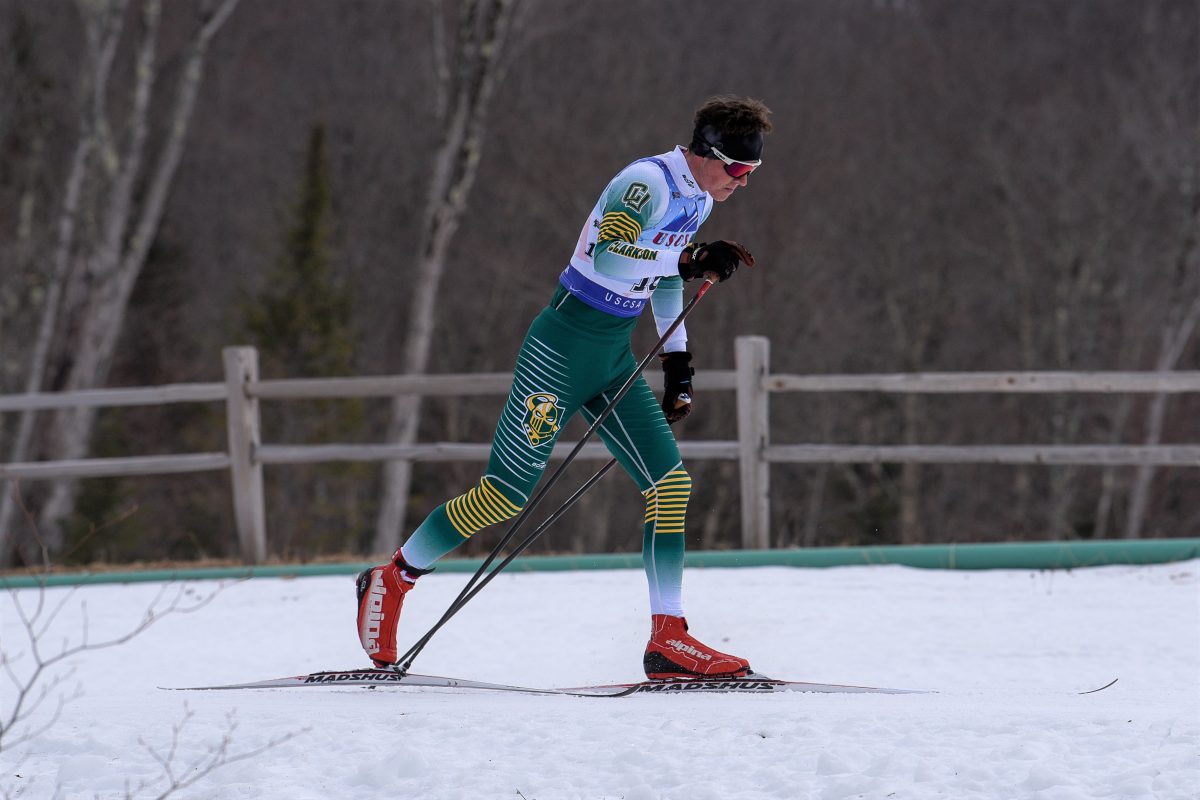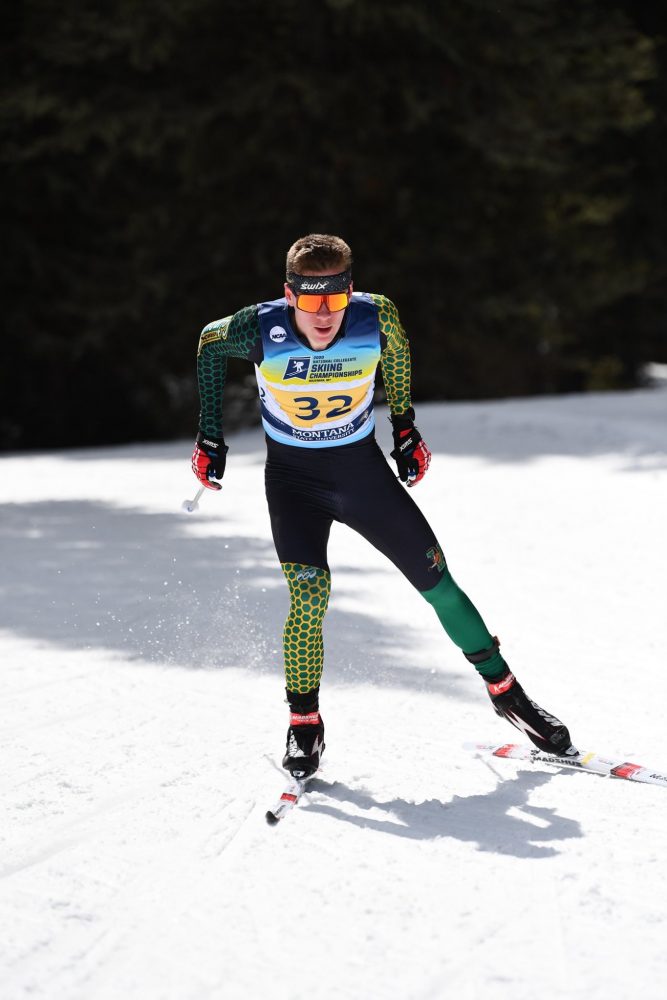
With the 2016/2017 season officially in the rearview, FasterSkier is excited to unveil its annual award winners for this past winter. Votes stem from the FS staff, scattered across the U.S., Canada, and Europe, and while not scientific, they are intended to reflect a broader sense of the season in review. This honor goes to outstanding international skiers of the year.
Previous categories: Junior Skiers of the Year | Collegiate | Canadian Continental | U.S. Continental | Nordic Combined | Biathletes | Para-Nordic | Canadian Breakthroughs| U.S. Breakthroughs | Coach
***
Sergey Ustiugov, Russian World Cup Team
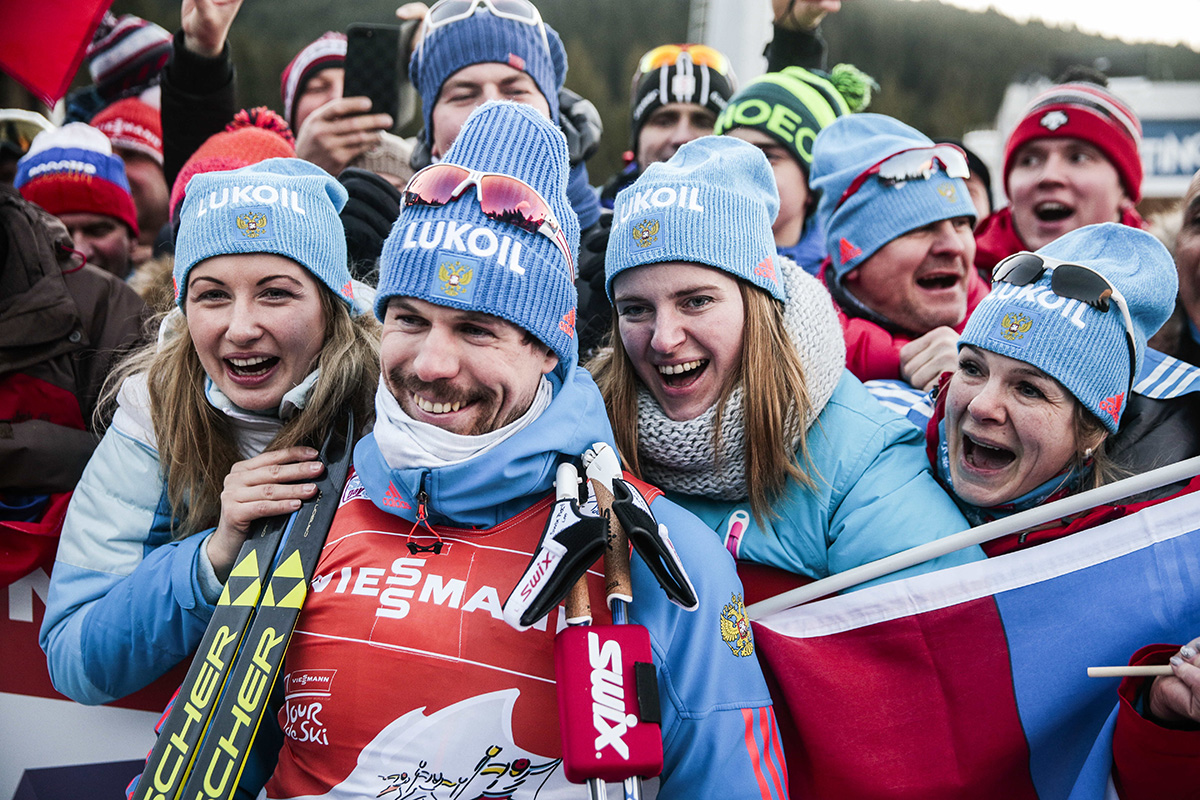
Russia’s Sergey Ustiugov was dominant when it seemed to matter most this season. He finished second in the Overall World Cup, he won his first Tour de Ski (TdS) — punctuated with an unprecedented six victories in seven TdS stages, and he brought the deflated Russian team five medals at World Championships.
The day before World Championships began, five of Ustiugov’s teammates implicated in the second McLaren report detailing systematic state-sponsored doping at the 2014 Sochi Olympics had their provisional suspensions upheld by the Court of Arbitration for Sport (CAS). Those athletes were declared ineligible for the 2017 World Championships.
It’s an open question whether that news motivated Ustiugov. Over the course of the championships, the 24 year old won gold in the 30-kilometer skiathlon and team sprint. He hauled in two silvers, one in the individual sprint, the other in the 50 k skate. He helped Russia, and himself, to a fifth medal: silver in a nail-biter 4 x 10 k relay, which Norway won.
After that relay, Sundby called Ustiugov the best skier in the world during a press conference. And for most of the season, Ustiugov indeed proved himself one of the world’s best, if not the man to beat.
Ustiugov stood on five other World Cup podiums outside the TdS, four of which were in individual races.
Ustiugov, who turned 25 last weekend, gained recognition back in 2012 when he won four gold medals at the Junior World Ski Championships. In 2013 he racked up two more golds in the 15 k skate and 30 k skiathlon at U23 World Championships. He backed those performances up as he matured, winning a skate sprint and 15 k classic at the 2014 U23 Worlds.
The young Russian skier’s rise to World Cup prominence hasn’t been meteoric. It’s been a steady step onto podiums at each stage of his international career. Ustiugov’s 2016/2017 season makes his case as Russia’s next best hope and he’ll likely remain Sundby’s foil in the upcoming Olympic year.
Marit Bjørgen, Norwegian World Cup Team

Yes, she’s a new mom. But with the the 2016/2017 season in the review, Marit Bjørgen is the same ol’ machine. After skipping last season while pregnant with her first child, the 36-yar-old Norwegian (who turned 27 last month) opened the first distance race of the year with a win in the 10 k classic in Kuusamo, Finland, just 11 months after the birth of her son, Marius.
It was the third race she had competed in since March and her second victory (she also won the Beitostølen 10 k FIS race the weekend before).
Less than a week later, Bjørgen was back on the podium in Lillehammer, Norway, this time in third behind American Jessie Diggins in first and her Norwegian teammate Heidi Weng in second in the World Cup 5 k freestyle.
She closed curtains on 2016 with two more top-three finishes: second in the La Clusaz 10 k mass start and first in the 4 x 5 k relay the next day, during which she posted the fastest second-leg time. The win was Bjørgen’s 25th relay victory and a predictor for the following two relays she’d enter this season in Ulricehamn, Sweden, and at World Championships in Lahti, Finland, both of which she anchored.

If there was any doubt about her ability to regain dominance, she wasted no time dispelling it.
Opting to sit out this year’s TdS, Bjørgen returned to the World Cup race scene five weeks after La Clusaz, adding another 10 k win to her list. She’d tally four more 10 k victories — one of them at world champs — to end the season undefeated at that distance.
By the end of world champs, Bjørgen had accumulated four gold medals. She’d go on to win the Holmenkollen 30 k classic mass start by more than two minutes and capped off the Québec City World Cup Finals with a mini-tour victory. All while simultaneously being a mom.
Honorable Mention: Heidi Weng, Norwegian World Cup Team
Two seasons ago in Kuusamo, Finland, in November 2015, Norway’s Heidi Weng made an honest mistake in a 10 k classic pursuit and “spaced”: she skied past the lap lane and into the finish, crossed the line and collapsed. She still had an entire lap to ski. Weng righted the situation, backtracked, and finished ninth.
Who doesn’t make mistakes? Unfortunately Weng’s was exposed on the world stage.
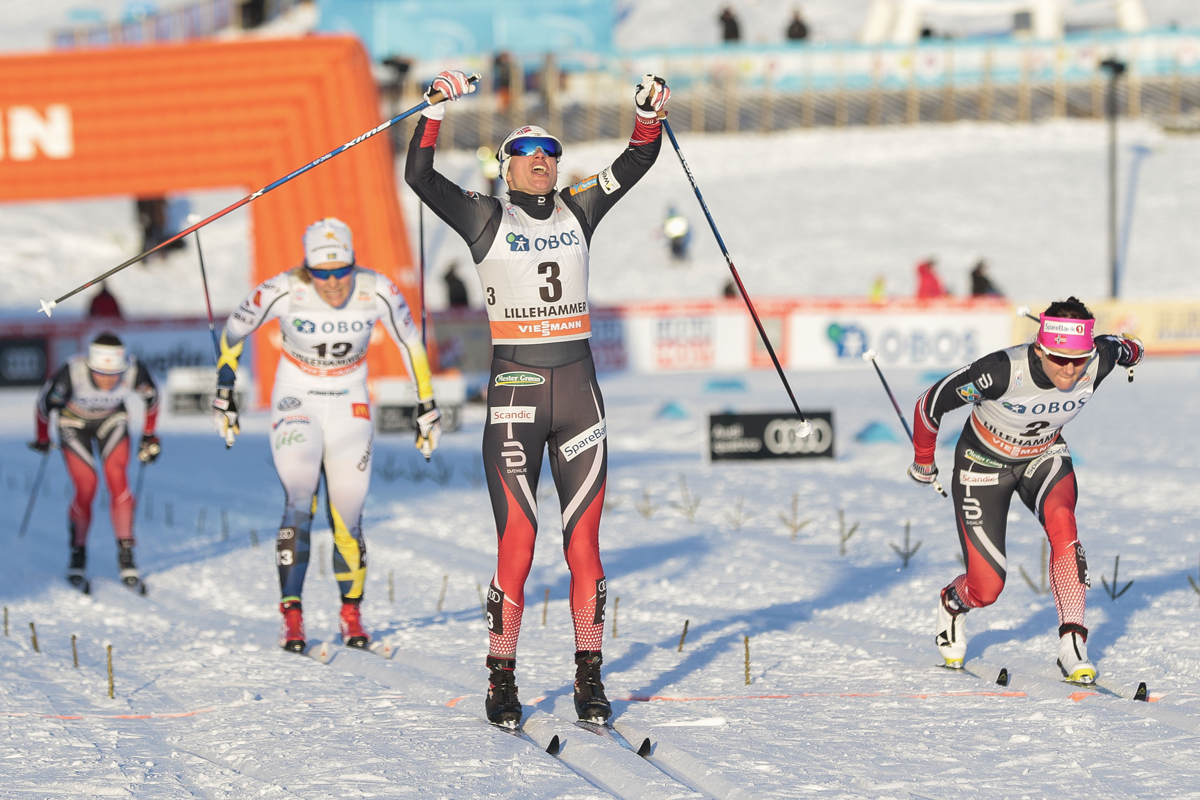
At the time, her teammates Therese Johaug and Marit Bjørgen were the dominant Norwegian forces on the women’s side. It was as if Weng’s narrative would be continually defined by race place and time back to Johaug and Bjørgen.
This past World Cup season, Weng proved her detractors wrong. She finished the season first in the Overall World Cup, first in the Distance World Cup and fourth in the overall sprint standings. That’s two crystal globes in Weng’s trophy case. Weng also won her first Tour de Ski.
Those awards were for a stellar season in which the 25 year old sustained her fitness and motivation. But there’s more — she won two golds at World Championships in Lahti in the classic team sprint and 4 x 5 k relay. Weng added a silver to that collection when she placed second in the 30 k skate mass start.
“I must have a little more confidence that I am a good skier because I always think I am not as good as the others, but now I have a better head,” Weng said after the last race of the season in Quebec. She placed second in the World Cup Finals mini tour, behind Bjørgen.
Honorable Mention: Johannes Høsflot Klæbo, Norwegian National U23 Team
There were a number of names Norway planned to enter in the first race of the season. Johannes Høsflot Klæbo was not one of them. He was a three-time Junior World champion in 2016, but his World Cup experience? None. That, however, did little to deter the 20-year-old from making a statement his first year racing on the circuit.

In his debut World Cup race, one he wasn’t even originally supposed to start, Klæbo sprinted to third, after qualifying first to start the day. His second career World Cup sprint was just as sweet: he podiumed in third, finishing behind American Simi Hamilton and fellow Norwegian Sindre Bjørnestad Skar.
And by the his third World Cup sprint, Klæbo was calling the shots. He earned his first World Cup win in February, besting his teammate Finn Hågen Krogh and Russia’s Ustiugov by more than half a second.
In his first World Championships, Klæbo would take home an individual bronze medal in the skate sprint, just barely missing another medal in the team sprint.
Following world champs, he would go on to place second in the Drammen sprint and win the final two distance races of the year (his first-ever distance World Cup wins) to win World Cup Finals. On top of all that, he also ended the season as the Sprint World Cup leader, earning his first Sprint Crystal Globe.
Honorable Mention: Martin Johnsrud Sundby, Norwegian World Cup Team
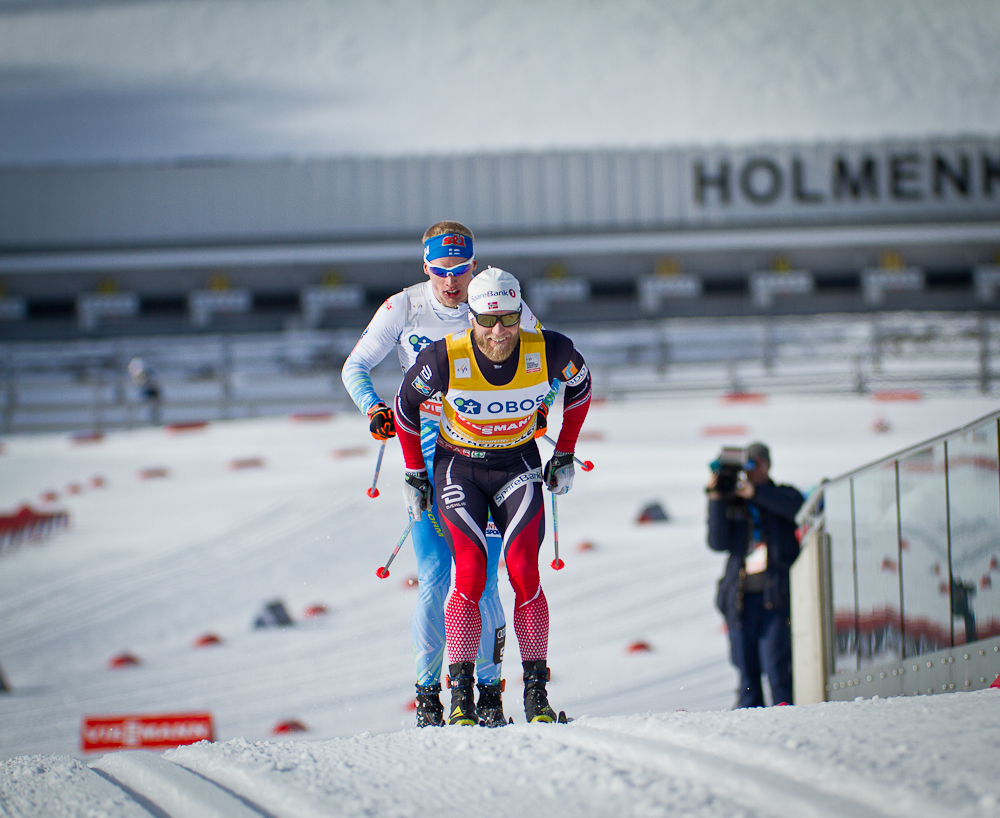
There have always been racing hot streaks, peaks for major championships, timeless and historic runs on the World Cup. FasterSkier’s International Skier of the Year could have gone to Martin Johnsrud Sundby, who has been on a roll of his own following a professional and emotional setback last summer when he was sanctioned for an anti-doping violation.
Back in full force for the 2016/2017 World Cup season, Sundby captured his third overall Crystal Globe in the last four seasons (he was stripped of his 2014/2015 overall title for the infraction).
Those prizes were the result of 12 individual podiums, five of which were wins. All but one of the remaining podiums were for second place.
In his final World Cup race of the season, the 50 k Holmenkollen classic, Sundby dueled with Finland’s Iivo Niskanen for much of the race. In the closing chapters of the race, Sundby pulled away for a solo win to the delight of tens of thousands of Norwegian fans.
Yet Sundby did not win the Tour de Ski or secure his first-career individual World Championships gold medal. Make no mistake, Sundby’s season was stand out. But the albatross around Sundby’s neck, in particular when it comes to his standing as one of the all-time Norwegian greats, is still that individual world champs or Olympic gold. The next two years offer Sundby more opportunities for that world title: there’s the 2018 Winter Olympics in PyeongChang, South Korea, and the 2019 World Championships in Seefeld, Austria.


